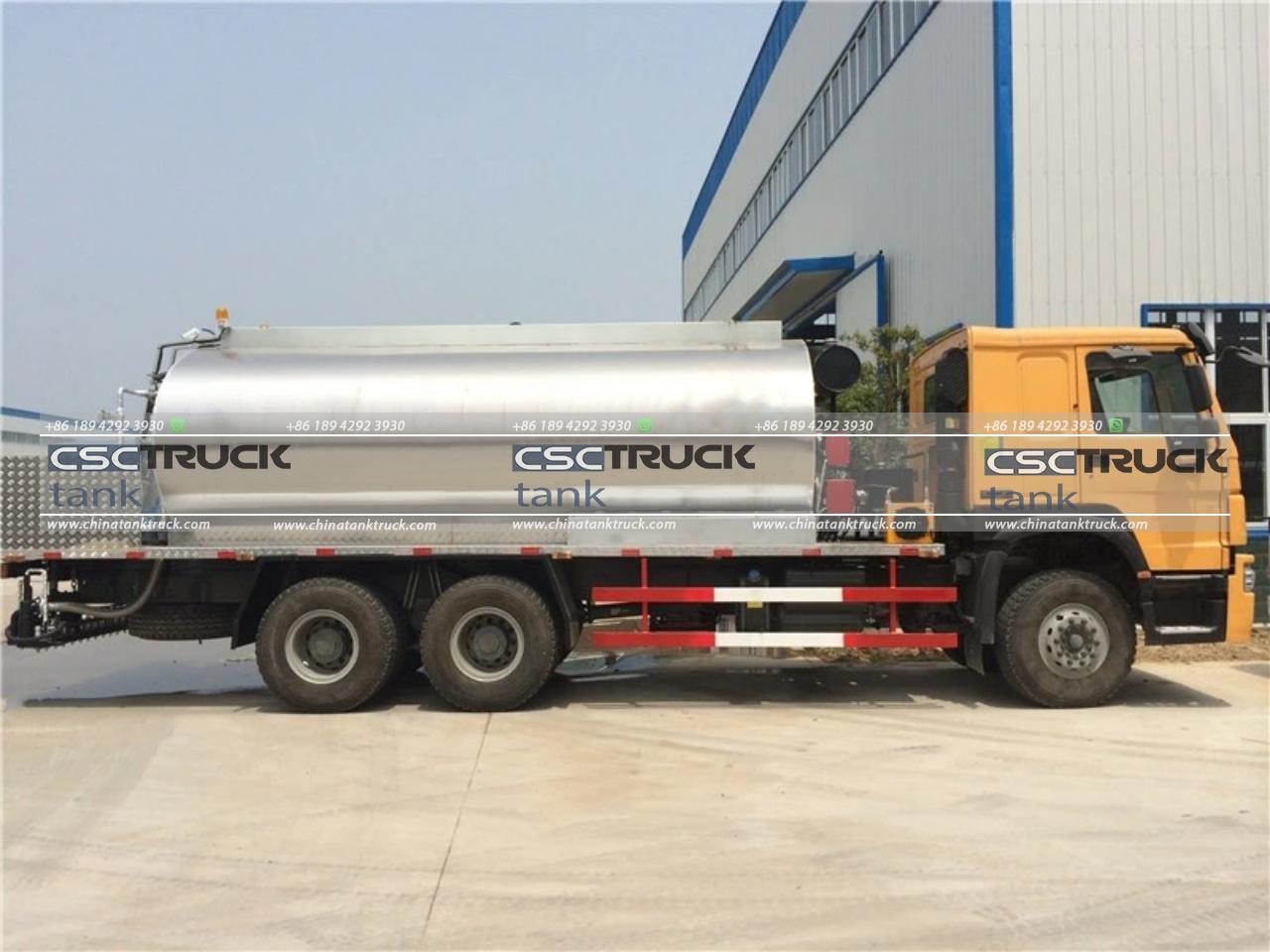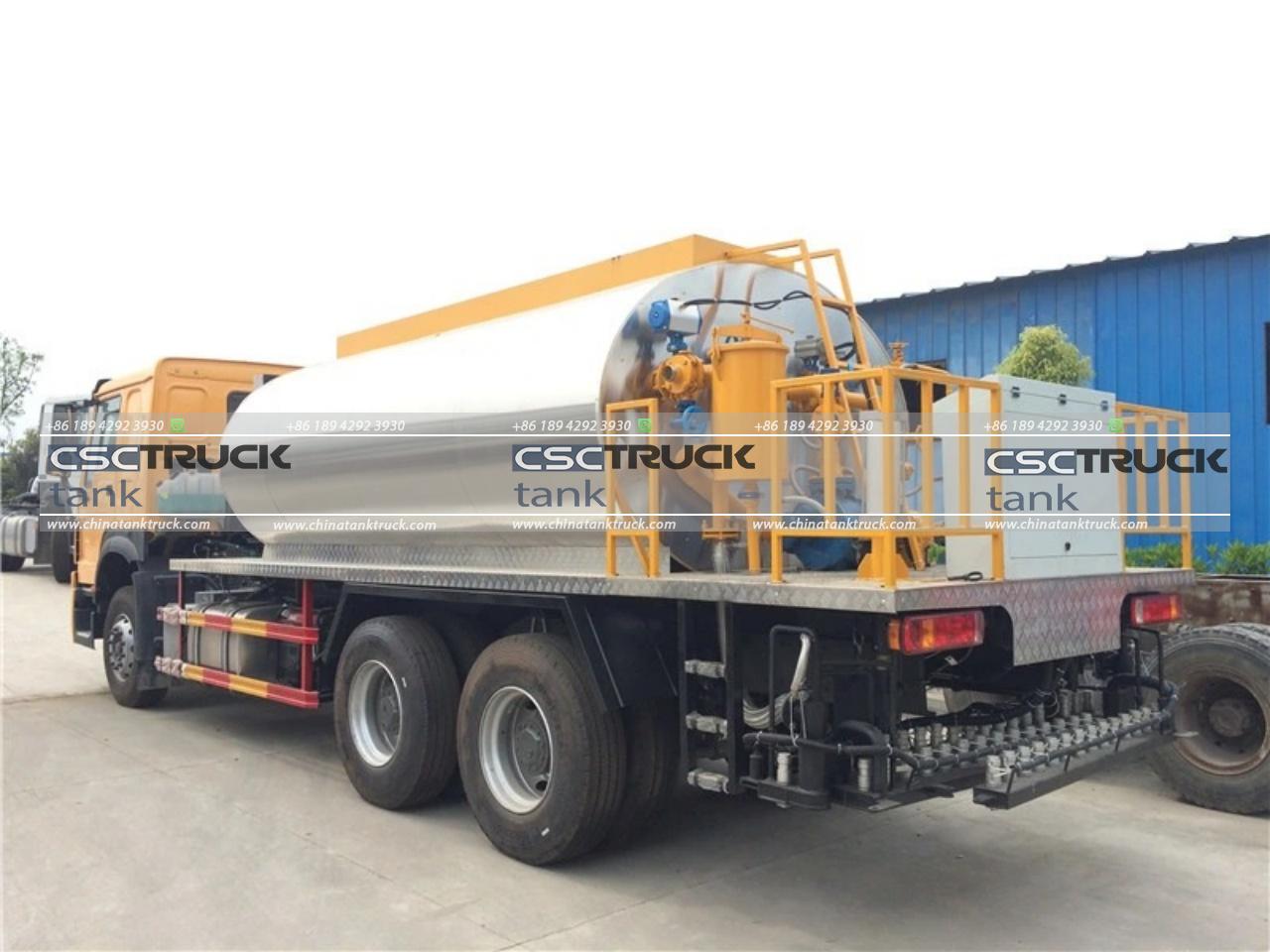How Many Tons is an Asphalt Truck?
Asphalt trucks are critical components in the road construction and maintenance industry, transporting the essential material—hot mix asphalt (HMA)—from production plants to the job site. The capacity of these trucks is a key factor in the efficiency and cost-effectiveness of any paving operation. But how much material can an asphalt truck carry? The answer to this question involves understanding different types of asphalt trucks, their capacities, and the factors that influence these capacities.
Types of Asphalt Trucks
Before diving into the specifics of how many tons an asphalt truck can carry, it’s important to recognize that there are different types of asphalt trucks, each with its capacity:
1. Standard Dump Trucks:
Standard dump trucks are commonly used in asphalt transport. They are versatile, used not just for asphalt but also for gravel, sand, and other materials. These trucks typically have a capacity ranging from 10 to 20 tons, depending on the size and configuration.
2. End Dump Trucks:
End dump trucks are similar to standard dump trucks but are specifically designed to carry and unload asphalt. They have a sloped bed that allows for easier dumping. These trucks can carry between 10 to 22 tons of asphalt.
3. Live Bottom Trailers:
Live bottom trailers are unique in that they have a conveyor belt system at the bottom of the bed that allows for precise unloading of asphalt. These trailers can carry between 20 to 25 tons of asphalt, making them ideal for large paving projects.
4. Pneumatic Asphalt Trailers:
Pneumatic trailers are less common for asphalt but are used in specific scenarios. They use air pressure to unload the material and can carry between 18 to 22 tons.
5. Flow Boy Trailers:
Flow Boy trailers, also known as asphalt conveyor trailers, are designed for the transportation of hot mix asphalt. These trailers can carry up to 25 tons of asphalt and are equipped with a conveyor system for controlled unloading.

Factors Affecting Asphalt Truck Capacity
Several factors influence how many tons an asphalt truck can carry:
1. Truck Size and Configuration:
The size and configuration of the truck or trailer play a significant role in determining its capacity. Larger trucks and trailers can carry more material, but they may also have limitations on where they can be used due to size and maneuverability constraints.
2. Axle Load Limits:
Road regulations impose axle load limits to prevent damage to roads and bridges. These limits vary by region and can affect how much asphalt a truck can legally carry. For example, in the United States, federal law limits the weight of a single axle to 20,000 pounds and a tandem axle to 34,000 pounds.
3. Material Density:
The density of the asphalt mix also affects how much material can be transported. Hot mix asphalt typically has a density of around 145 pounds per cubic foot, which translates to approximately 2,400 pounds per cubic yard. Knowing the density of the material allows for accurate calculations of how many tons can be loaded onto a truck.
4. Weather Conditions:
Weather conditions, especially temperature, can impact the volume and weight of the asphalt. In colder weather, asphalt may cool and become less compact, reducing the amount that can be loaded into a truck. Conversely, in hot weather, the asphalt may expand slightly, allowing for a larger load.
5. Truck Weight and Balance:
The weight of the truck itself and how the load is distributed can affect how much asphalt it can carry. Proper loading and weight distribution are crucial for safe transport and to avoid exceeding legal weight limits.
Calculating the Capacity of an Asphalt Truck
To calculate how many tons an asphalt truck can carry, you need to consider the volume capacity of the truck’s bed and the density of the asphalt material. The general formula used is:
Total Capacity (Tons) = Volume Capacity (Cubic Yards) × Asphalt Density (Pounds per Cubic Yard) / 2,000 (Pounds per Ton)
For example, if a standard dump truck has a bed with a volume capacity of 15 cubic yards and the asphalt density is 2,400 pounds per cubic yard, the calculation would be:
Total Capacity (Tons) = 15 × 2,400 / 2,000 = 18 Tons
This means the truck can carry approximately 18 tons of asphalt, assuming optimal conditions and no regulatory weight restrictions.

Practical Considerations
While the theoretical capacity of an asphalt truck can be calculated, in practice, several factors can reduce the actual load:
1. Legal Weight Limits:
As mentioned earlier, legal weight limits can restrict the amount of asphalt that can be loaded onto a truck. Even if a truck’s bed can hold more material, it may not be legal to transport that amount without exceeding axle load limits.
2. Job Site Constraints:
The location of the job site can also influence how much material is loaded onto a truck. For example, if the site is in a residential area with narrow streets, smaller loads may be necessary to navigate the area safely.
3. Operational Efficiency:
In some cases, it may be more efficient to carry smaller loads to ensure a steady supply of asphalt to the paving crew. This can prevent delays caused by waiting for a truck to return with another load, especially on smaller projects where large volumes of asphalt are not required.
4. Safety Considerations:
Overloading a truck can create safety hazards, including increased braking distances and the risk of a rollover. Ensuring that the load is within safe limits is essential for the safety of the driver and other road users.
Conclusion
The capacity of an asphalt truck is influenced by a variety of factors, including the type of truck, its size, axle load limits, and the density of the asphalt material. On average, an asphalt truck can carry between 10 to 25 tons, depending on these factors. Understanding the capacity of the truck is crucial for planning efficient and cost-effective paving operations, ensuring that the right amount of material is delivered to the job site safely and on time.
In practice, the exact capacity of an asphalt truck will vary based on specific circumstances, and careful consideration must be given to legal, operational, and safety factors when determining how much asphalt to load onto a truck for any given project.


